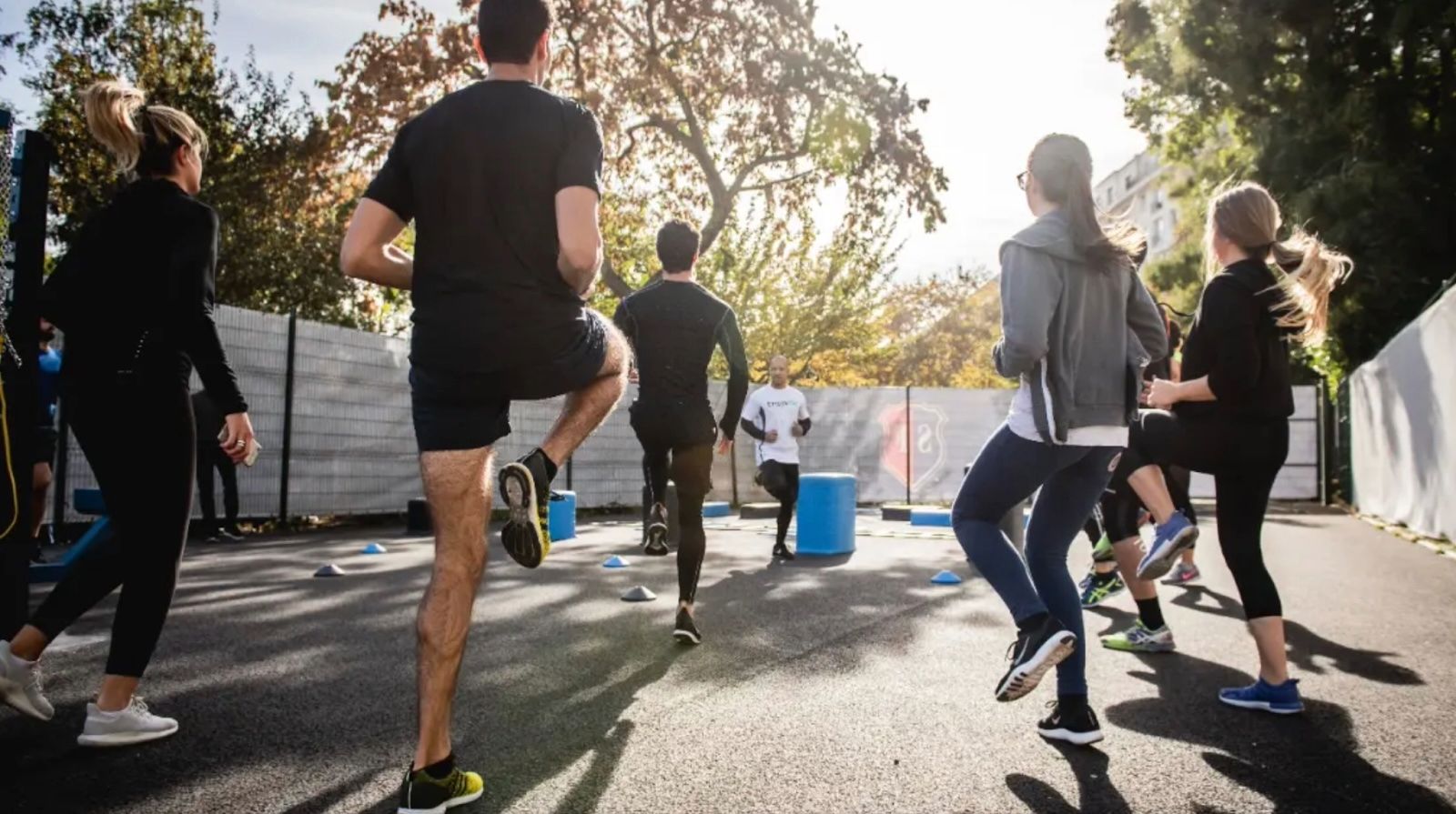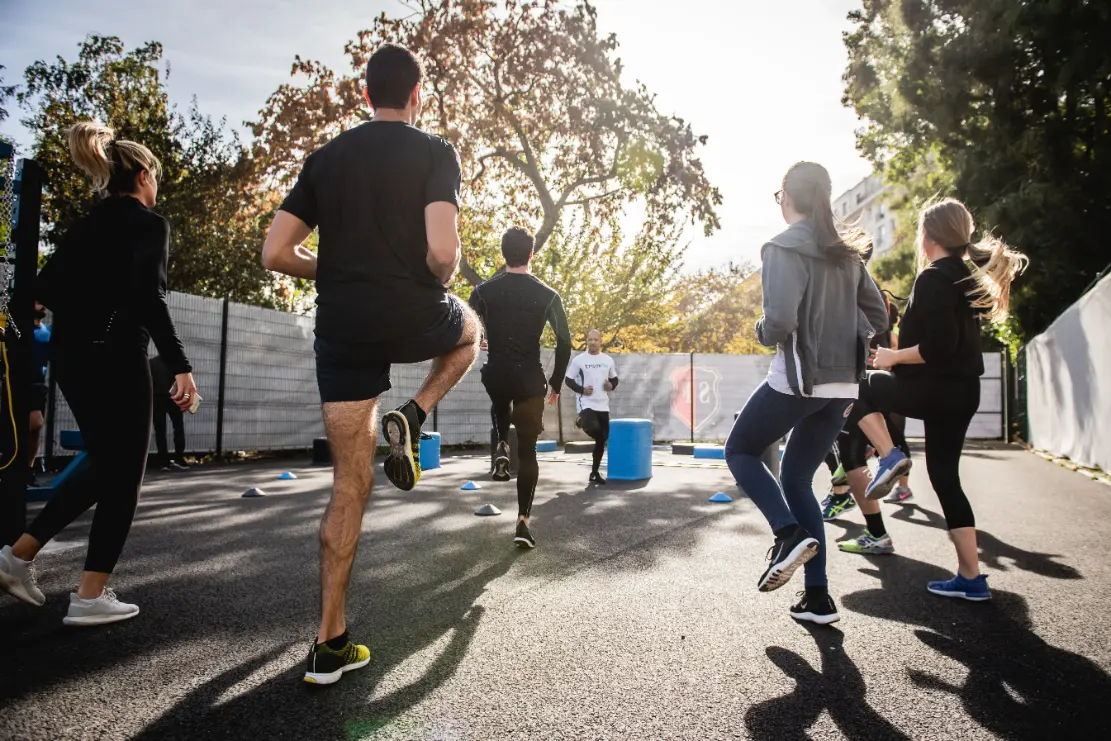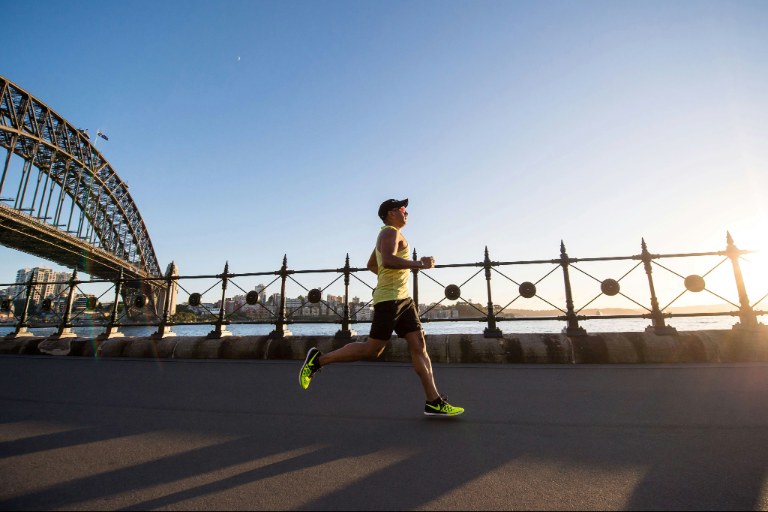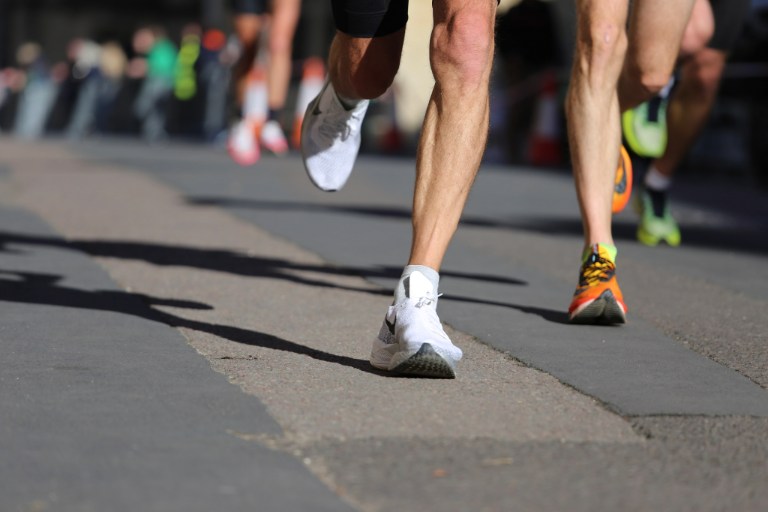How to Run a 22-minute 5K: The Ultimate Guide to Breaking 22 Minutes
Starting your running journey should feel exciting, not overwhelming. Our training plans give you the structure, support, and flexibility you need to go from your first step to running 5k, no matter your starting point.

Running a 5K in 22 minutes is a big milestone for many runners, and with good reason. Hitting that time shows you’ve built solid speed, reliable endurance, and the discipline to train with purpose. For most, it’s a mark that proves you’ve moved beyond casual jogging and are starting to unlock more of your running potential.
That said, getting down to 22 minutes isn’t something that just happens on race day. It requires structured training, smart pacing, and the confidence to keep pushing when fatigue sets in. The encouraging part? With consistency, a clear plan, and the right strategies, a 22-minute 5K is absolutely within reach – whether you’re aiming for a parkrun PB or lining up at your next local race.
In this complete guide, you’ll find everything you need to hit your 22-minute goal:
- Exact target paces and splits so you know what to hit every kilometre.
- Fitness benchmarks to check if you’re ready to take it on.
- A proven training plan with the sessions you need to build speed and endurance.
- Race-day tactics to pace yourself smartly and finish strong.
- Expert tips and real success stories from coaches and runners who’ve reached the 22-minute mark.
No guesswork, no overcomplication. Just practical, proven advice to help you run your fastest 5K yet – and actually enjoy the journey along the way.
Ready? Let’s go get that 22!
What Does It Take to Run a 22-minute 5K?

To run a 5K in 22 minutes, you’ll need to lock into a pace of about 7 minutes 4 seconds per mile, or 4 minutes 24 seconds per kilometre. That’s the benchmark: every mile and every kilometre has to hit the mark if you want to cross the line on time.
Put simply, you’ll need to run each kilometre in 4:24.
It looks straightforward on paper, but the real challenge is keeping that pace when your legs start to tire and your breathing gets heavy. Success at this level comes from a mix of speed endurance, confidence in your goal rhythm, and the mental strength to push when the effort bites.
Who is this goal realistic for?
If your current 5K times are around 23:00–24:30, you’re in a strong position to aim for 22 minutes with a structured plan. You already have a decent aerobic base, but now it’s about refining your speed, raising your lactate threshold, and practising consistent pacing.
And don’t worry if your PB is still a little outside that range – plenty of runners make breakthroughs when they train specifically for this target. By focusing on the right workouts and building steadily, that 4:24 pace will start to feel less intimidating and more natural.
Are You Ready for a 22-minute 5K?
Before you set your sights on running a 22-minute 5K, it helps to check if your current fitness is close enough to make the goal realistic. Going in too early can lead to frustration or even injury. These simple benchmarks will give you a good idea if you’re ready to train at 4:24/km pace with confidence.
Benchmark Sessions
1. The 3 x 1K Repeats Test
Head to a track or a measured stretch of road and run 3 x 1K repeats with 2–3 minutes of light jogging or walking between efforts.
- Target: each kilometre in 4:20–4:25
- If you can complete all three reps strongly (and feel you might have one more in the tank), you’re on track to handle the pace required in the race.
2. The 1-Mile Time Trial
Another option is to run a solo mile effort. Warm up thoroughly, then run one mile hard but under control.
- If you can cover the mile in around 7:00–7:10 and still feel like it’s manageable with more training, it’s a strong sign you’re near 22-minute shape.
These short but telling tests give you a reliable snapshot of whether you’re close to race pace fitness or if you’d benefit from a little more base building first.
Check Your Weekly Mileage Base
Speed sessions alone won’t carry you to a 22-minute finish. Your body needs a strong aerobic foundation to absorb the harder workouts, recover quickly, and hold form late in the race.
As a guide:
- You should already feel comfortable running 20–25 km (12–15 miles) per week for at least a month.
- If your weekly mileage is lower, build it gradually before adding in tougher speed sessions.
Combining a steady mileage base with strides or short pickups will give you the endurance and resilience needed to handle the workouts that come with chasing a 22-minute 5K.
Key Training Principles
To break through the 22-minute mark, your training should balance endurance, speed, and smart pacing. It’s not just about working harder, it’s about structuring your week so you get the most out of every run. Here’s what to focus on:
1. Build Mileage Gradually
A strong aerobic base is the foundation of any solid 5K performance. It gives you the stamina to hold pace when it gets tough and allows you to bounce back quicker between harder workouts.
- Aim for 20–30 km (12–18 miles) per week if you’re an improving runner.
- Increase weekly mileage slowly (no more than 10% at a time) to reduce injury risk.
- Keep the majority of these runs easy and conversational. Your speed sessions will provide the intensity.

2. Include Intervals
Intervals sharpen your ability to run at or slightly quicker than race pace while training your body to handle fatigue.
- Sessions like 6 x 400m, 5 x 800m, or 4 x 1K at 4:20/km pace or faster are great choices.
- Always warm up properly and use light jogging or walking recoveries between efforts.
One quality interval workout per week is usually enough for most runners.

3. Add Tempo Runs
Tempo runs help you get comfortable sustaining a faster effort for longer stretches. They build your threshold so you can hold your race pace without feeling like you’re red-lining.
- Run these at about 85–90% of your maximum effort, or roughly 4:30–4:35/km.
- A good starting point is 15–20 minutes at tempo pace after an easy warm-up.

4. Don’t Skip the Long Run
Even for a 5K, a longer run once a week pays off. It strengthens your aerobic engine, helps with energy efficiency, and builds mental toughness.
- Aim for 50–65 minutes at an easy pace.
- Think of it as steady time on your feet, not a workout that needs to be fast.

5. Strength & Mobility Work
Strength training supports faster running and helps prevent injuries that could derail your progress.
- Focus on glute activation, core stability, and single-leg exercises, which are key for efficient running mechanics.
- Add mobility work to keep hips, calves, and hamstrings loose and healthy.
Just 1–2 short sessions per week (15–20 minutes) is enough to make a noticeable difference.

Pacing & Race-Day Strategy
As you step onto the start line, your plan matters just as much as your fitness - and the right pacing strategy can carry you all the way to a 22-minute breakthrough. Here's how to set it up:
1. Warm Up Properly
A good warm-up is essential for hitting your target pace from the very first step, without feeling heavy-legged.
- Easy Jog: Begin with 10–15 minutes of gentle jogging to loosen your muscles and get your blood flowing.
- Dynamic Stretches: Add movements like leg swings, lunges, or hip circles to open your stride and activate key muscles.
- Strides: Finish with 4–5 short bursts at faster-than-race pace, around 80–90% effort, to prime your legs for the opening kilometre.
By the time you reach the start line, you should feel switched on, loose, and ready to go.

2. Start Smart
The excitement at the start can make it tempting to go out too fast, but that’s the quickest way to ruin your 22-minute attempt.
- Stick to your goal pace: 4:24 per km or 7:03 per mile.
- Your first kilometre should feel controlled, like you’re holding just a little bit back.
If the opening split feels comfortable, that’s exactly where you want to be. The effort will build naturally as the race unfolds.

3. Hold Your Nerve in the Middle
The second and third kilometres are often where doubts creep in. Fatigue starts to appear and your brain may urge you to ease off.
- Focus on posture: stay tall through the torso, keep your shoulders relaxed, and maintain quick turnover.
- Lock into your cadence, thinking light, fast steps rather than heavy, overstriding ones.
If you need motivation, pick a runner ahead and work on gradually keeping their pace or reeling them in.

4. Nail the Final Kilometre
This is where your preparation pays off. Tell yourself you only have a few minutes of hard effort left and commit to finishing strong.
- Look for a landmark about 300–400 metres from the finish to use as your trigger point.
- When you reach it, dig deep and push harder, emptying the tank over the final stretch.
Keep your head up, drive your arms, and remind yourself that every second matters.

Mental Tips for Breaking 22

Running a 22-minute 5K is as much a test of mindset as it is of fitness. Your training prepares your body, but it’s your mental approach that keeps you locked in when things get uncomfortable. Here are some strategies to sharpen your focus and carry you through the full distance:
Break the Race into Chunks
Don’t let the full 5K distance feel overwhelming. Mentally divide the race into five 1K segments, each with its own purpose:
- 1K: Settle in. Find your rhythm, relax, and trust the pace.
- 2K: Hold steady. Keep it smooth and under control.
- 3K: Stay alert. This is where focus becomes important.
- 4K: Embrace the grind. Everyone feels tired here – stay strong.
- 5K: Give it everything. Empty the tank and drive for the line.
Thinking of the race in parts makes it easier to stay present and avoid feeling weighed down by the full distance.
Use Positive Mantras
When fatigue hits, short phrases can keep you moving with purpose. Repeat something simple in time with your stride, such as:
- “Relax and roll.”
- “Strong and smooth.”
- “One more step.”
These reinforce good form and keep negative thoughts from taking over.
Focus on Your Breath
Your breathing can be a powerful anchor when your legs start to ache. Stick to a steady rhythm – for example, in for two steps, out for two. This helps you stay calm, maintain form, and avoid unnecessary tension.
Visualise Success
During your training runs, take a moment to picture race day. Imagine yourself running with control, hitting each split, and finishing strong. See the clock showing 22:xx as you cross the line. That mental picture can give you a big boost of belief when it matters most.
Nutrition & Gear for a 22-minute 5K

Even for a 22-minute 5K, what you eat and wear can influence how smoothly your race goes. The aim is to keep things simple and familiar so you can stay focused on running strong, not worrying about food or kit issues.
The Night Before
Your preparation starts with dinner the evening before the race.
- Have a carb-based dinner such as pasta, rice, or potatoes with lean protein.
- Keep it light and balanced so you’re fuelled but not overly full.
- Drink enough water throughout the day, but avoid chugging large amounts right before bed.
Race Morning
A light, familiar breakfast will help you avoid hunger without weighing you down.
- Go for easy options like a banana, a slice of toast with honey, or a small bowl of cereal.
- Aim to eat 2–3 hours before the start, then sip water up until race time.
- Avoid anything spicy, fatty, or brand-new. Race day is not the time to experiment.
Gear: Keep It Light and Tested
Your gear should give you confidence, not distractions.
- Choose lightweight running shoes that feel quick, but only if you’ve worn them in.
- Stick to kit you’ve trained in – brand-new shoes, socks, or clothing can cause problems.
- Check the weather forecast and dress for the conditions. Layers are fine for warming up, but strip down to your racing outfit before the start.
Frequently Asked Questions
Yes! A 22-minute finish puts you ahead of the majority of recreational runners and shows you’ve built solid fitness and speed. It’s a time that often places well in local events.
Is a 22-minute 5K good?
Yes! A 22-minute finish puts you ahead of the majority of recreational runners and shows you’ve built solid fitness and speed. It’s a time that often places well in local events.
How long does it take to train for a 22-minute 5K?
Most runners can reach this goal in 8–12 weeks if they are currently finishing around 23–24 minutes and already running consistently.
What pace is a 22-minute 5K?
You’ll need to run at about 7:05 per mile or 4:24 per kilometre to finish in 22 minutes.
Do I need speedwork to hit 22 minutes?
Yes. Easy running builds your aerobic base, but interval training, tempo runs, and strides are essential to handle the pace comfortably on race day.
How much should I be running each week?
For most runners aiming for 22 minutes, building up to 20–30 km (12–18 miles) per week gives a strong foundation without overloading the body.

